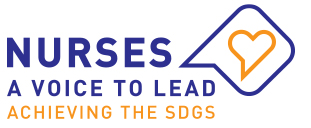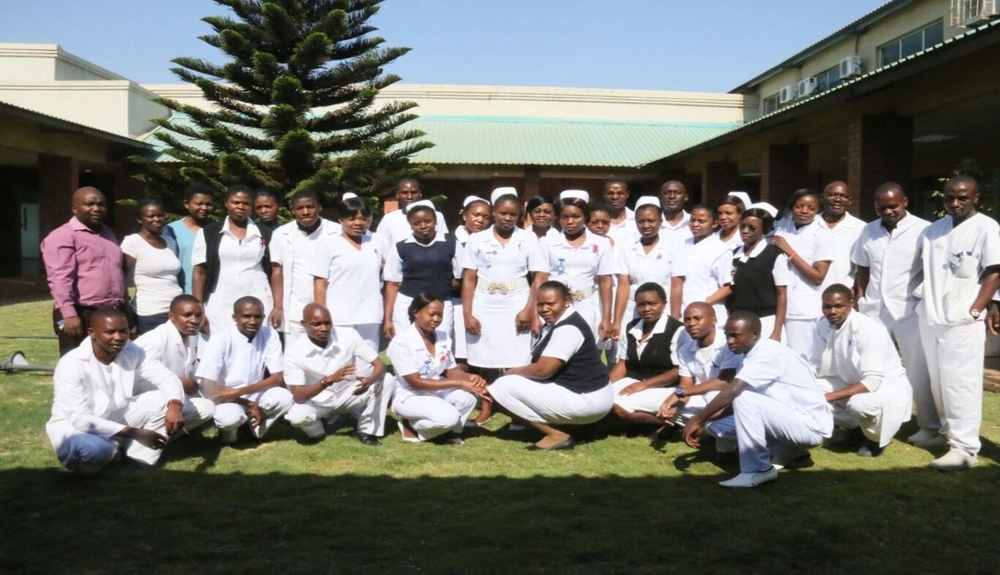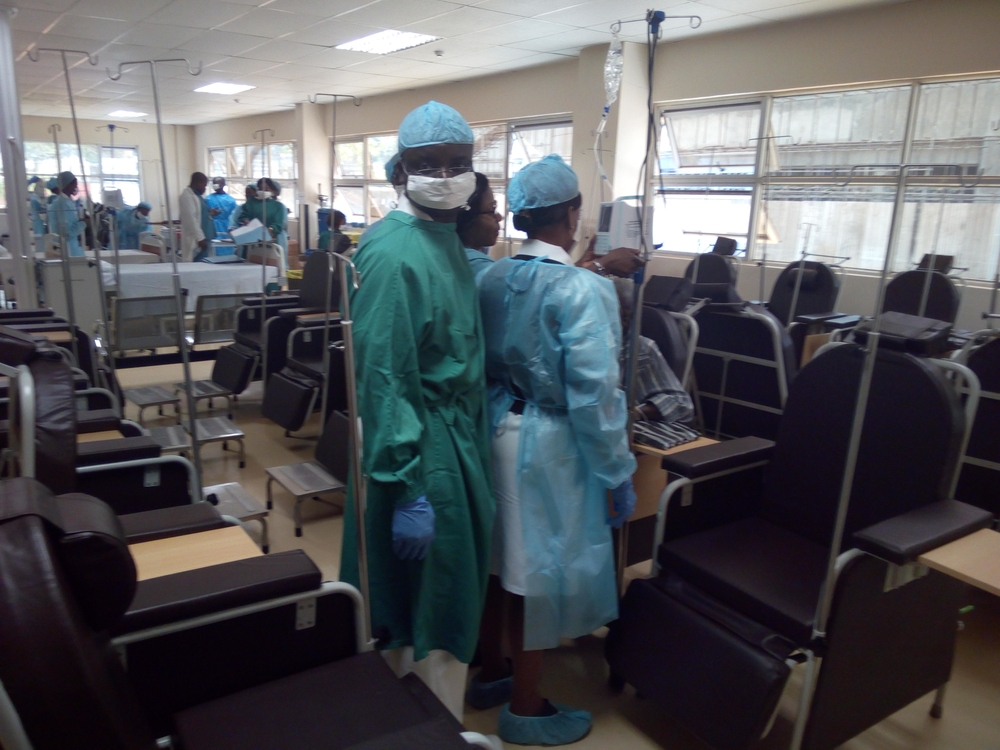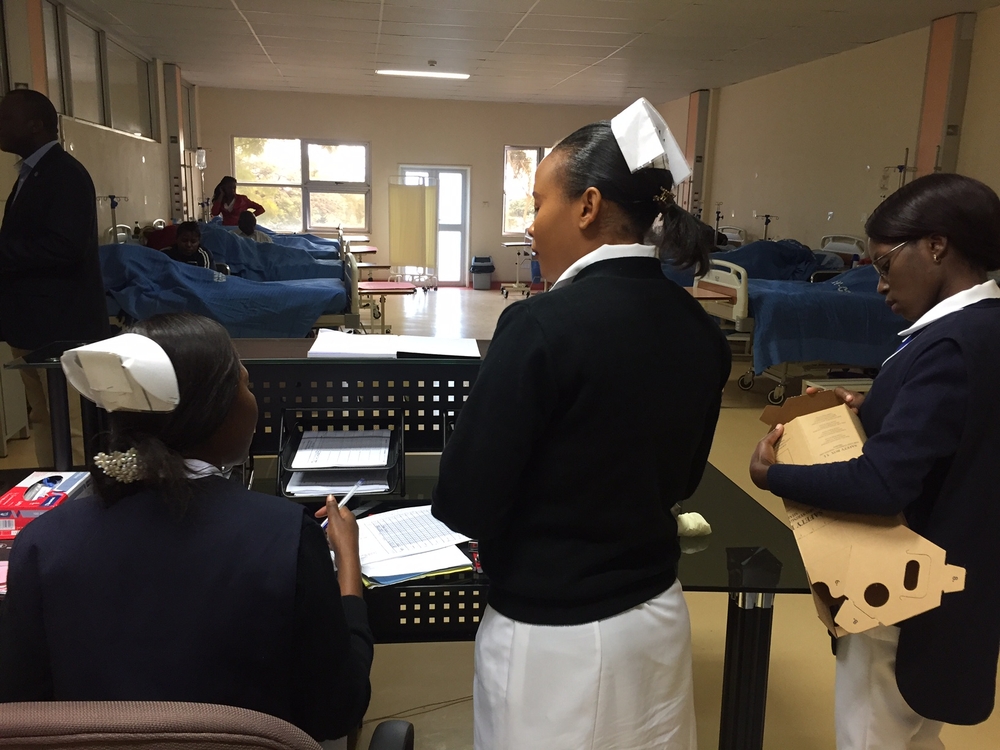Oncology Nurses, Zambia
Just as the Victoria Falls and as the waters can thunder, so can the nurses thunder and make a difference in cancer patients.
In 2012, there were 8.2 million deaths caused by cancer. The vast majority of these cancer related deaths (65%) occurred in low and middle income countries and by 2030, this figure is expected to rise to 9 million (69% of the total).
One of the main reasons for this is the lack of access to appropriate treatment. In high income countries, between 50-60% of patients diagnosed with cancer will be administered radiotherapy at some point during their treatment. But for many living in low and middle income countries, radiotherapy remains an unattainable treatment with only 25% of patients having access to it.[i]
The issue of access is a major problem for those in Africa. In Zambia, the Cancer Disease Hospital (CDH) is the only hospital offering radiotherapy in the country. It has a catchment population of over 13 million people and supports neighboring countries such as Zimbabwe, Malawi, Angola and Congo DRC.
The CDH has only 9 nurses trained in oncology. The remaining staff are generalist nurses with either minimal or limited education in cancer care. This is of concern as patients presenting to the service are often highly complex with associated other complications such as HIV/AIDS, socioeconomic or geographic issues. This complexity in conjunction with a limited experience in oncology has led to issues with workplace health and safety as well as maintaining quality services to patients. One of the reasons so little nurses are trained in specialties is that the country did not offer the appropriate programmes, forcing nurses to travel to South Africa at restrictive expenses.
To address this problem, Sophai Namukonda, the Principal Nursing Officer Oncology in charge of all nursing services at the hospital, worked with the team of experienced oncology nurses to develop an action plan to improve the knowledge and skills of the generalist nurses.
The strategies incorporated included the establishment of a specialized orientation programme, attendance at multidisciplinary team meetings, mentorship programmes with expert nurses and novices, increasing access to online resources and training programmes as well as regular peer assessments. In the long term, Sophai is organizing exchange programmes with other oncology institutions and is launching local education and training programs.
As a result, the quality of nursing care has improved and standards for safety are being adhered to.
[i] International Atomic and Energy Agency (2013). “The Advisory Group on increasing access to Radiotherapy Technology in low and middle income countries.” Retrieved 7 November, 2016, from https://cancer.iaea.org/documents/AGaRTBrochure.pdf





